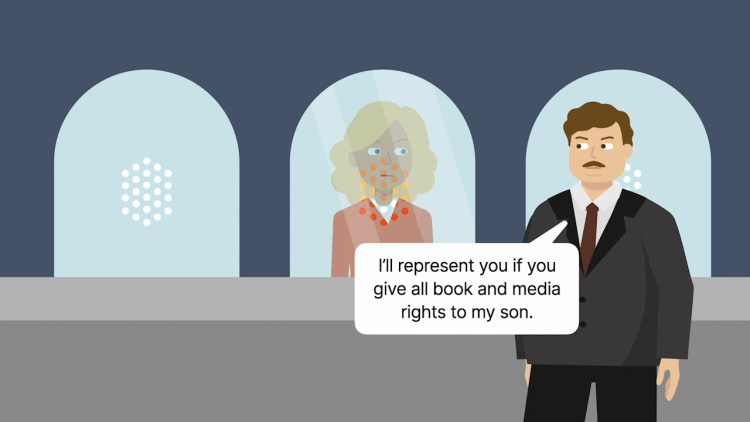Beets v. Collins
United States Court of Appeals for the Fifth Circuit
986 F.2d 1478 (1993)
- Written by Rose VanHofwegen, JD
Facts
Betty Lou_Beets’s fifth husband, Jimmy Don Beets, disappeared in 1983, his fishing boat found adrift. Fire destroyed his trailer home over a year later. Beets asked her lawyer, E. Ray Andrews, to help her recover insurance and death benefits. Andrews agreed to do so under a contingent-fee arrangement. But before Beets received the first benefits check from the Dallas Fire Department (Jimmy Don’s employer), she was arrested and charged with capital murder. Jimmy Don was found shot and buried under a planter in Beets’s front yard—along with her fourth husband, who was buried under a patio shed. (Beets had previously shot a third husband, although he survived.) Andrews agreed to extend his representation to defend Beets against capital murder charges. Shortly after trial began, Beets signed a contract transferring all literary and media rights in her case to Andrews’s son in full payment of Andrews’s fee. The judge did not know about the media-rights contract until Beets requested appointment of appellate counsel three months after trial, and never asked whether Beets waived her Sixth Amendment right to conflict-free counsel. Meanwhile, Beets was convicted of murdering her fifth husband for his insurance and death benefits. On appeal, Beets asserted that the media rights contract created a conflict of interest that violated her Sixth Amendment right to effective assistance of counsel at trial.
Rule of Law
Issue
Holding and Reasoning (Jones, J.)
What to do next…
Here's why 907,000 law students have relied on our case briefs:
- Written by law professors and practitioners, not other law students. 47,100 briefs, keyed to 996 casebooks. Top-notch customer support.
- The right amount of information, includes the facts, issues, rule of law, holding and reasoning, and any concurrences and dissents.
- Access in your classes, works on your mobile and tablet. Massive library of related video lessons and high quality multiple-choice questions.
- Easy to use, uniform format for every case brief. Written in plain English, not in legalese. Our briefs summarize and simplify; they don’t just repeat the court’s language.





